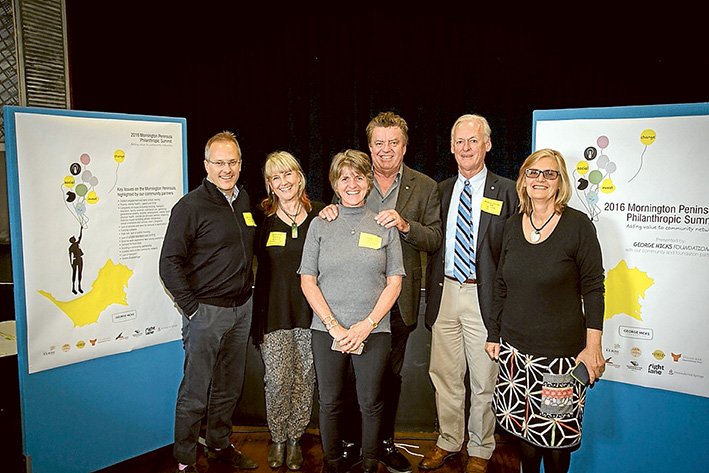
“COMMUNITY-DRIVEN” transport options and more affordable housing are two of the goals in a 20-year vision to address the needs of young people on the Mornington Peninsula.
The George Hicks Foundation’s inaugural Mornington Peninsula Philanthropic Summit last month was attended by community service providers, local government, businesses and philanthropic organisations, and was facilitated pro-bono by Right Lane Consulting.
The summit formulated a long-term vision for the peninsula that would see more emergency accommodation for families, a youth hub, mental health support for young people, and greater coordination between young people and community service providers.
The summit also looked at how place-based funding could address community needs, and presented findings from the Regional Statistical Profile – Mornington Peninsula, 2011 to 2015 report commissioned from the National Institute of Economic and Industry Research (NIEIR).
Participants looked at how the needs of young people living on the peninsula might be addressed through coordination of community organisations, philanthropic funders, business and local government.
The three most critical regional issues were lack of public transport, lack of affordable housing and access to quality pre-school services.
Solutions in response included greater coordination of services and long-term, coordinated funding, greater access to early childhood services, community hubs, holistic case management for households under stress, a youth hub and emergency accommodation, and “tech-enabled” and community-driven transport systems outside public transport.